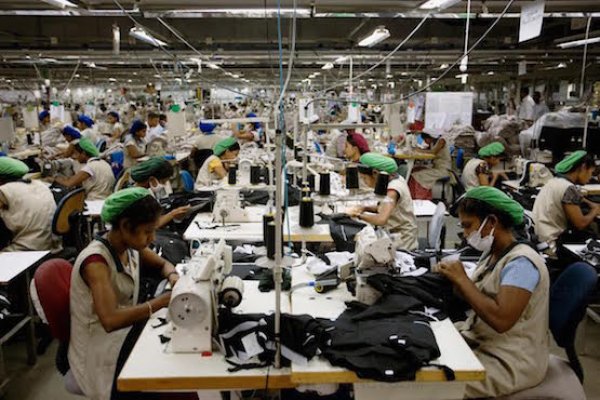Anton Marcus, a Catholic labor rights activist, told EU delegates in Colombo Jan. 22, that infringements on worker rights are ongoing in Sri Lankan apparel factories.
"Workers today are not allowed to engage in trade union activity or open discussions with employers about wages or other issues," said Marcus.
United Federation of Labor and Commercial and Industrial Workers Union President Linus Jayatilaka, said that the ban on collective bargaining resulted in workers being unable to make any requests to improve their livelihoods.
A few factories had signed a memorandum of understanding with the workers but he said it isn't a form of collective bargaining.
"Without trade unions there cannot be collective bargaining and this is important for workers to discuss their problems with employers and obtain labor rights," said Jayatilaka.
Marcus said that the right to collective bargaining is enshrined in international treaties, which Sri Lanka has signed. He said the EU delegation has promised to consult the International Labor Organization and obtain their recommendations on the implementation of Sri Lankan labor laws and on any required amendments to existing legislation as well.
The EU delegation's visit to Sri Lanka was to conduct discussions with the new government, trade unions, industries and other parties on how the country can regain trade concessions through the Generalized System of Preference Plus, or GSP Plus, which allowed textiles and garments duty-free entry into EU member-nations.
The EU revoked trade concessions under the GSP Plus for the country in 2010 because of human rights abuses that allegedly occurred during Sri Lanka's civil war. When trade concessions with the EU were lost, it resulted in 25 apparel factories being closed and the loss of an estimated 10,000 jobs.
As a renewed trading partner, Marcus said the EU would establish a monitoring mechanism where trade unions would be able to make complaints. It would also be possible for the EU to be able to intervene in local labor disputes, he added.
Father Sarath Iddamalgoda who supports the rights of apparel workers, noted that "there is no democracy in industrial zones."
"Freedom of association, which was a fundamental right, is not practiced in factories," he told ucanews.com.
(ucanews.com)






